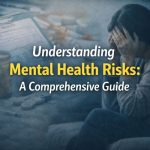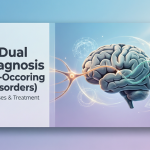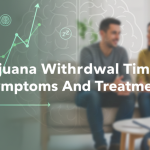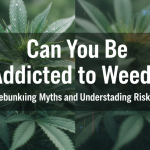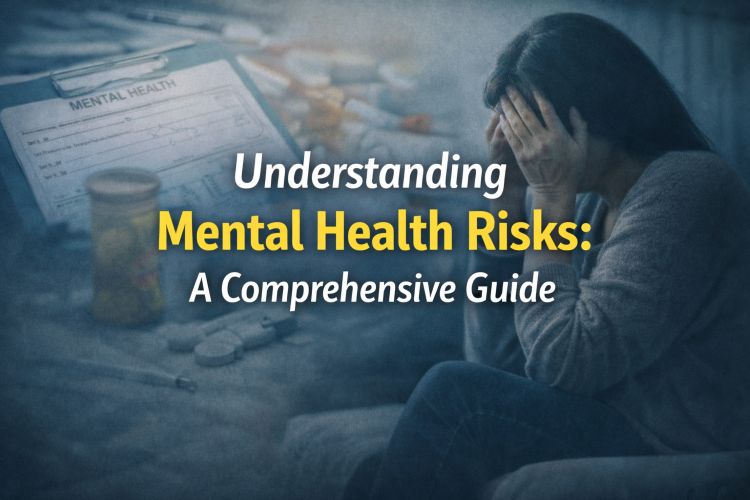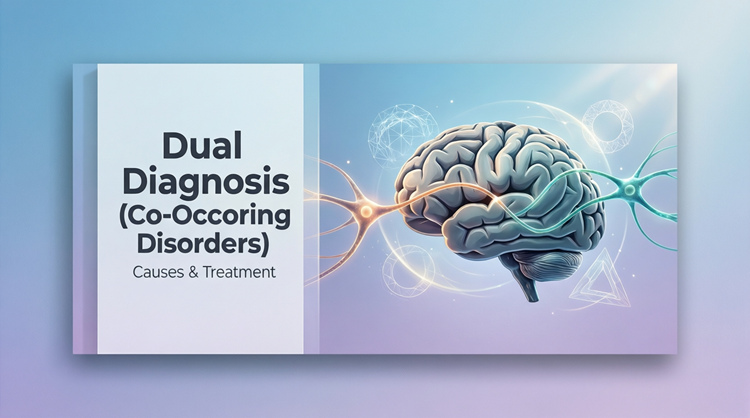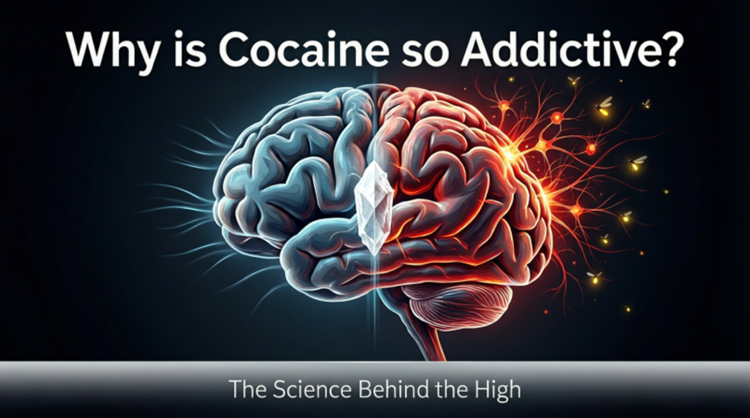Borderline Personality Disorder (BPD) is a serious mental health condition that can cause you to experience an imbalance in thinking and feelings about yourself and others. It can result in problems in daily life, including having trouble keeping relationships, handling emotions, and controlling impulses. Here in this blog, we are going to discuss what borderline personality disorder is, who gets Borderline Personality Disorder, what the symptoms of BPD are, and what treatments are available to cope with this disease.
What is Borderline Personality Disorder?
Borderline personality is a mental health disorder marked by pervasive instability in moods, worth, and relationships. Those with BPD experience episodes of emotion comparable to how they feel, a fear of abandonment, impulsive behaviors, and a distorted self-identity.
Cluster B personality disorders, characterized by dramatic, emotional, and erratic thoughts and behaviors, are what this condition is classified as. BPD is more than just mood swings: it’s a chronic pattern that’s both emotional and interpersonal dysregulation that can affect all areas of someone’s life.
People with BPD often find it difficult to understand or react appropriately to their emotions in relationships. Simply, they may find it hard to hold on to a job, or remain friends, or even in a long-term partnership.
Who Does Borderline Personality Disorder Affect?
Borderline personality disorder can occur at any age, in both sexes, and any background. However, research has shown that
- While men are underdiagnosed, women are diagnosed more frequently.
- Symptoms usually begin in adolescence or early adulthood and tend to get more severe during the early adult years, with some improvement that may occur as the person ages.
- It affects people who have a family history of BPD or other mental health conditions.
- Neglect or abandonment may increase your chance of developing BPD.
BPD brings its share of challenges, but with a correct diagnosis and treatment, many people can lead a full, productive life.
100% Confidential Support is Available 24/7
No matter what you’re going through, you’re not alone. Our dedicated team is here to provide a safe, judgment-free space where you can talk openly and honestly. Whether you need emotional support, resources, or just someone to listen.
We’re here for you—completely confidential and always respectful of your privacy. Call us today!
Borderline Personality Disorder Symptoms
A key first step in getting help is identifying the signs and symptoms of borderline personality disorder. These symptoms can be severe and caused by stress, personal relationships, or life events.
Here are the most common borderline personality disorder symptoms:
1. Fear of Abandonment
Those with BPD tend to live with an ongoing fear that others will leave or reject them—for reasons that may or may not be real. This fear results in frantic efforts to keep from being abandoned, often manifested in clinging, in begging to be reassured, or in the sudden cutting off of people before they get hurt.
2. Unstable Relationships
Having intense and unstable relationships is one of the hallmark signs of BPD. In just a few hours or just a few days, people could change from idealizing someone to devaluing them because they are mean or indifferent.
3. Unclear or Shifting Self-Image
Individuals with BPD often lack, or have a poor understanding, of who they are as a person. Their opinions, goals, values, or identity can change very dramatically from day to day. It can hasten changes in career goals, friendships and personal values.
4. Impulsive and Risky Behavior
BPD is inclined to engage in impulsive activities. This might encompass going on spending sprees, indulging in reckless driving, engaging in binge eating or substance abuse. These are habitual behaviors that are often employed as an escape from emotional pain or as a way to feel some sort of control.
5. Self-Harm and Suicidal Behavior
Self-injurious behaviors, such as cutting, burning, and other types of self-harming behaviors, are common in individuals with BPD. Suicidal thoughts or attempts are not uncommon, often in response to what the individual feels is rejection or emotional stress.
6. Extreme Emotional Swings
Mood swings that shift quickly, lasting from a few hours to a few days are common in people with BPD. Shifts in emotion can occur, including feelings of anger, sadness, anxiety and feeling empty. Unlike bipolar disorder, these shifts are usually in response to a life event that involves interpersonal trauma.
7. Chronic Feelings of Emptiness
People with BPD may have an ongoing sense of emptiness or boredom. They may tell you that they feel ‘hollow’ or that they aren’t sure who they are. This makes people risk their behaviors just to feel something or to fill up the void.
8. Inappropriate or Intense Anger
People with BPD may often have frequent episodes of intense anger, sometimes without any obvious reason. This could involve yelling, throwing things, or fighting. The anger is often inward or folks get upset at important relationships with this embarrassing stimuli.
9. Paranoia or Dissociation
People who have BPD may have paranoid thoughts or feel like they’re outside of themselves, or so-called ‘dissociated,’ when their situation is stressful. They may end up feeling as if they are outside of their body, seeming to watch themselves from afar or feeling confused and disoriented.

Deland Treatment Solutions
Battling with Drug and Alcohol Addition? Remember, you are not alone and we are here to help you!
Summary of Signs and Symptoms of Borderline Personality Disorder
- Intense fear of abandonment
- Unstable personal relationships
- Distorted self-image
- Impulsive and risky behavior
- Self-harm and suicidal thoughts or actions
- Rapid mood changes
- Chronic feelings of emptiness
- Intense or inappropriate anger
- Paranoia or dissociative episodes
Early treatment can make a difference if you or someone you love is showing multiple signs symptoms of borderline personality disorder.
How is Borderline Personality Disorder Treated?
BPD is very challenging, yet it is treatable. With help, many can improve in the long term and learn to live with their symptoms.
1. Psychotherapy
Psychotherapy is the foundation of BPD treatment. Several evidence-based approaches are effective for managing borderline personality disorder symptoms:
- Dialectical Behavior Therapy (DBT): It is designed for BPD. Individuals can use it to help them manage intense emotions, improve their relationships, and diminish self-harm.
- Cognitive Behavioral Therapy (CBT): CBT may be able to help change negative thought patterns and behaviors.
- Schema-Focused Therapy: It mashes the CBT elements with techniques that focus on finding and treating patterns that go back.
2. Medications
There are no medications specifically approved to treat BPD, but some may help manage symptoms like depression, anxiety, or impulsivity:
- Antidepressants
- Mood stabilizers
- Antipsychotic medications
Medication should always be used under a psychiatrist’s supervision, often in conjunction with therapy.
3. Group Therapy
Group therapy at its best, group therapy as a component of DBT, helps build social skills, helps improve interpersonal relationships and provides peer support in a safe environment.
4. Hospitalization or Intensive Care
Short hospitalization for cases with severe symptoms or suicidal behavior is possible to ensure safety and stabilization.
5. Lifestyle and Supportive Care
- Establishing a routine
- Avoiding alcohol or drugs
- Learning coping skills
- Building a support network
Taking care of yourself, being kind to yourself and using professional help are very important in treating borderline personality disorder.
Living with BPD: Hope and Healing are Possible
Borderline personality disorder can pose real problems, but recovery is possible. Some people with BPD learn to control their symptoms and develop healthier relationships and make other healthy contributions more meaningfully to the human community.
Diagnosis is important, but can be hard to get accurately, and getting help early makes a huge difference in the likelihood of a positive outcome. Through the right combination of therapy, medication, and support, people can make real changes that last.
Get Help at DeLand Treatment Solutions
If you’re struggling with borderline personality disorder symptoms, or if someone you love is, don’t wait to seek help. Concerning and compassionate treatment plans are provided by DeLand Treatment Solutions that attempt to understand the root causes of mental health issues, including BPD.
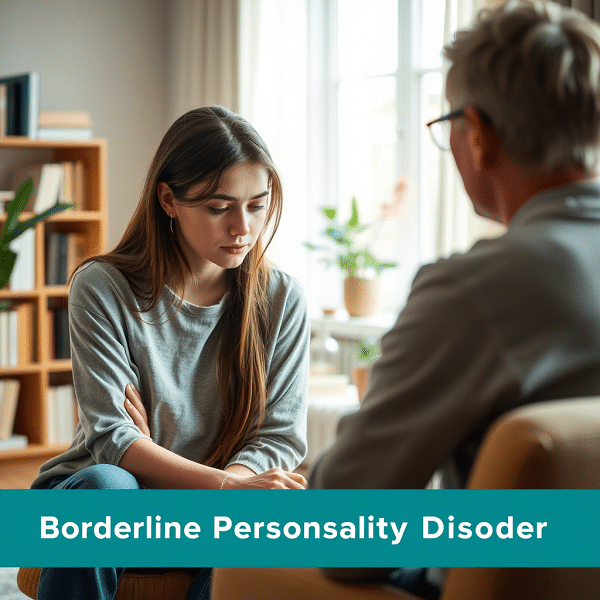
We offer therapy, medication management, and more to support your recovery.
To learn more about our mental health treatment programs and how we can give you stability and hope, call us today at (386) 866-8689.






